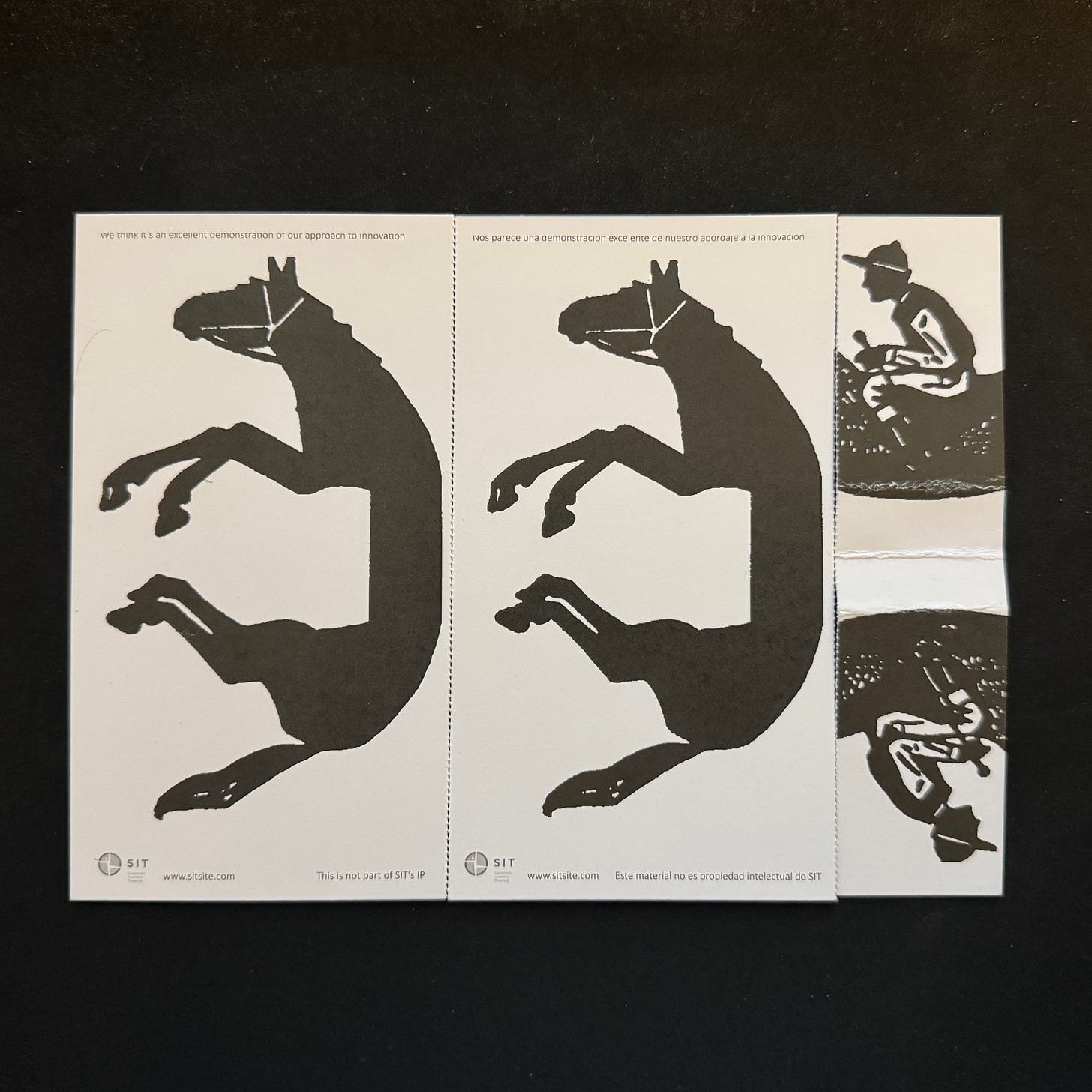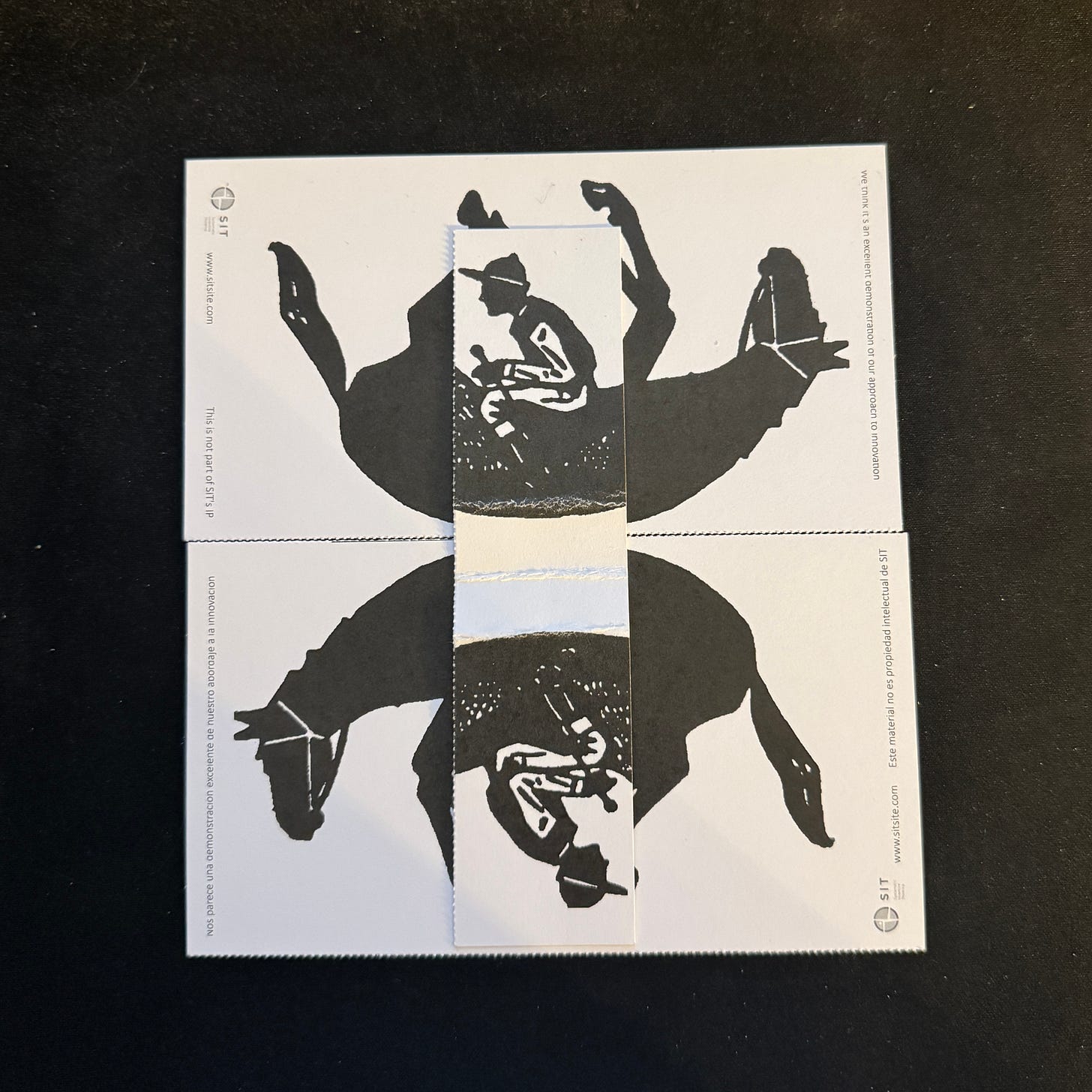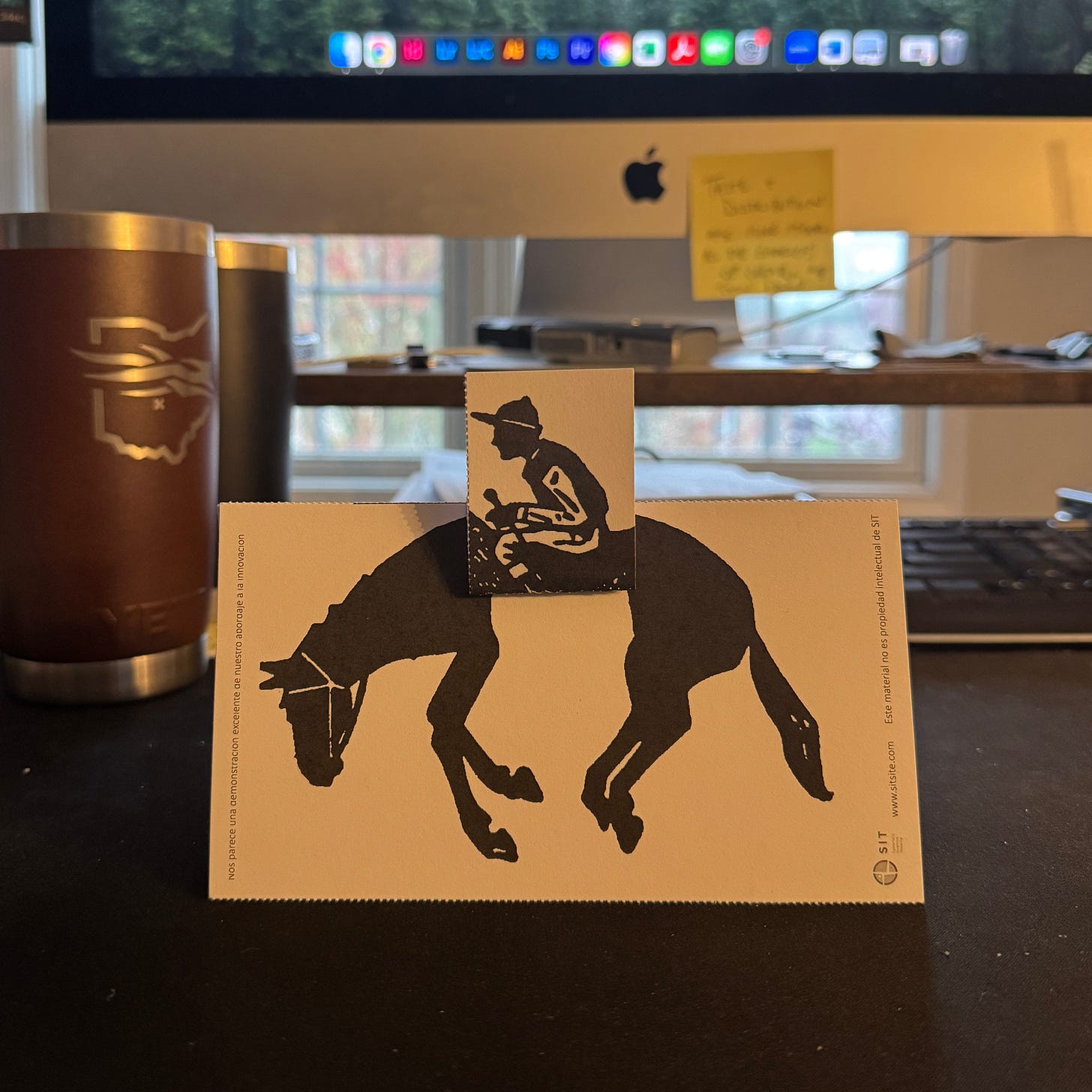I’m very lucky to love my job.
Through a series of twists and turns of career moves, I’ve found myself deep in the trenches of brand marketing. I’m currently on the agency side of the trench.
I don’t love client relations. I don’t love sending emails. And I definitely don’t love building a deck filled with ‘verified consumer insights’ to justify the business value of reposting a 220K-follower influencer’s Instagram story. (Yes, that really happened).
What I do love about my job is the opportunity to get smarter.
Last week, I found myself in an in-person ‘innovation workshop’ with one of my biggest clients. The brand just celebrated its 35th anniversary in a category they basically created, but has been slowly losing some market share to new entrants who are able to move infinitely quicker in comparison to our strict and rigid corporate marketing process.
Long story short, we could seriously benefit from some new, innovative thinking.
In this workshop, one of the first activities was an individual evaluation on the topic of fixedness. We were each tasked with aligning the below components so that both of the jockeys were riding the horses. The only rule was that the horses needed to remain back to back.
At some point or another, everyone in our workshop had the pieces aligned like this:
But as you can tell, no matter how much you shift those jockeys up or down, they keep riding upside down. You can move the top jockey down to ride the bottom horse, but then the other jockey isn’t riding a horse at all.
After fumbling around in the paper stable for a few minutes, our workshop leader told us to reveal our final product.
One person (who to be fair had done this experiment before) showed us the correct alignment.
The trick was to rotate the jockeys ninety degrees so that they were straddling the head of horse #1 and the rear of horse #2 to create two entirely new horses you didn’t even know were there. It was some real horse magic.
At this point in the story, you might be wondering what I had to show when it was time to reveal our horses. Time to place your bets.
If you guessed, “Jack stood both of his horses up like a card tower, strategically folded the jockeys so that they could both simultaneously sit atop their assigned horse in 3D”, you guessed correctly.
Yes, I got a few laughs from my fellow workshoppers, but I doubt they’ll be laughing when my horses take the Triple Crown this year.
Structural Fixedness vs Symmetrical Fixedness
The whole point of this exercise was to highlight how easy it is to fall into the same patterns and same ideas even when you’re trying to think ‘outside the box’.
Each workshop member came into this meeting knowing that we would be tasked to think deeper and think differently. Yet, not one person (excluding the one who had done this before) was able to correctly align their jockeys to the horses.
Everyone fell into the trap of ‘symmetrical fixedness’, a cognitive bias that hinders the ability to see solutions that don’t have a balanced or mirrored arrangement. We were told that the horses needed to stay back to back, which meant that everyone was trying to get their jockeys to ride their originally assigned horse to keep the layout mirrored and balanced.
Everyone (except me) also fell into the trap of ‘structural fixedness’, a cognitive bias that makes it difficult to imagine objects or systems having a different structure or organization than what we are accustomed to.
Fixedness is the construct that keeps us from breaking the status quo. It keeps us from new ideas because of the voice in our head that tells us “you can’t do that because that’s now how it’s supposed to be done.”
Obviously, I’m not afraid to tell that voice in my head to sit down and watch the race.
Me vs. Me
People sometimes ask if I’m competitive. The answer? Yes and no.
No, I'm not competitive about board games or golf scores. I loved playing competitive sports growing up, but I was never the person crying or throwing my helmet in anger after a game. I played three varsity sports in high school, was a First Team All-Region defenseman and an Ohio Top 100 lacrosse player my junior and senior year of high school.
Those accolades are a joke in comparison to my wife, who is a different breed of athlete. Highly competitive (and highly beautiful), she won nearly every award you could win in high school athletics including a state championship before going on to play D1 softball and winning even more collegiate awards.
Looking back at my athletic career, my goals honestly never included winning a state championship. I unknowingly took the Bill Belichick “Do Your Job” approach to team sports, with a singular goal to be the best player on our team. I had two primary jobs: don’t let my man score, and get the ball back to the offense. And I was damn good at both of those jobs.
Even though I often did, I didn’t focus my attention solely on beating opponents, I just wanted to beat yesterday’s version of me.
So yes, to answer your question, I’m not that competitive against others, but I am very competitive against myself.
That’s how I’ve always measured progress. Not by comparison, but by building self-confidence. Can I do my job better than I did it last time? Can I do it faster? Think of better ideas? Execute with more impact?
That mindset hasn’t changed.
When I’m assigned to a client or project, I know I’m the right person for the job. Not because I need to be better than someone else, but because I expect myself to be better than last time. That’s my standard.
I’m not afraid to think outside of the box because I recycle all of my boxes as soon as Amazon drops them off. There are no boxes in sight. Just ideas.
And this is why I love my job.
Because I love marketing. I love figuring out why people do what they do. I love reading people. But over time, I’ve learned that people can be pretty dumb… and sometimes, you have to be a little dumb yourself in order to do something smart that actually gets their attention.
I’ve talked before about this quote from former General Electric CEO Jack Welch:
“If you're the smartest person in the room, you're in the wrong room.”
When you’re the smartest person in the room, there’s nothing new left for you to learn. I personally prefer to sit somewhere in the top quartile of the room occupants, but I’m happy to be the one asking dumb questions if it means I’ll get better answers.
You have to be willing to get a little dumber to eventually get smarter.
At the end of the day, the best ideas don’t usually come from staying fixed to a commonly held belief or continuing the status quo. They come from folding the paper, standing it up, and riding off into the sunset on a horse no one else saw coming.
From My Desk:
What I’m Thinking/ Doing: If you know me in the real world outside of Substack, you’ve probably heard that my wife and I are expecting our first child in August. I haven’t shared this news yet on here because honestly I’m so excited I don’t even have the words yet to describe that excitement. But when I find the words, watch out.
Good thing the description of The Field Review is ‘The Newsletter to Help You Figure ‘it’ Out’, because I have a lot of new things to figure out, and figure out quick.
On Deck for Monday: I’m laughing now looking back at each weekly ‘From My Desk’ section from earlier this year talking about how slow work was. That has since flipped on its head with new deliverables hitting my inbox daily. I’m still winning the game of ‘Jack vs Deliverables’, but still there’s plenty of time left in this game for a comeback.
From The Field Review Archives:
The Field Review is a space for exploring the intersection of work, life, and the great outdoors. It’s about figuring ‘it’ out—whatever your ‘it’ might be.
Every Sunday at 10AM EST, I share ideas, insights, and conversations that help break through the noise, offering a real look at how we can all keep moving forward.
If you have any thoughts, questions, or topics you'd like me to explore in future newsletters, feel free to reach out!
Venture Onward,
Jack










Hey Jack, you know I love the focus on being competitive against yourself. I also find myself going back to previous struggles in career and even life, where it was hard to see any gains made then. But often, a setback made in the past set me up to make progress now.
But back to your point, I’m sure I would have missed all that if I was simply comparing myself against someone else who was running a different race, with different advantages and disadvantages than I have. Happy Monday, bro.
Congrats brother!!